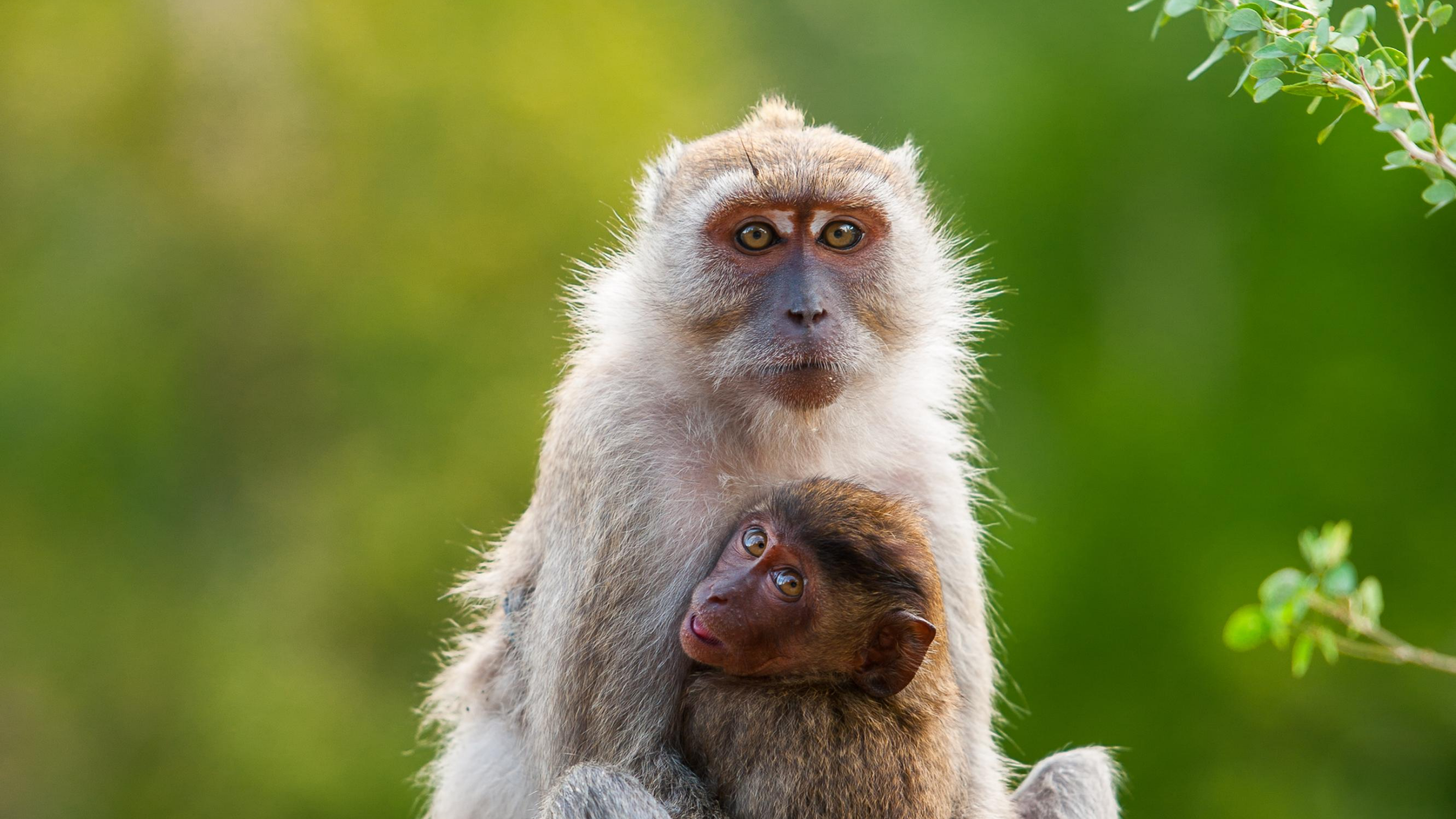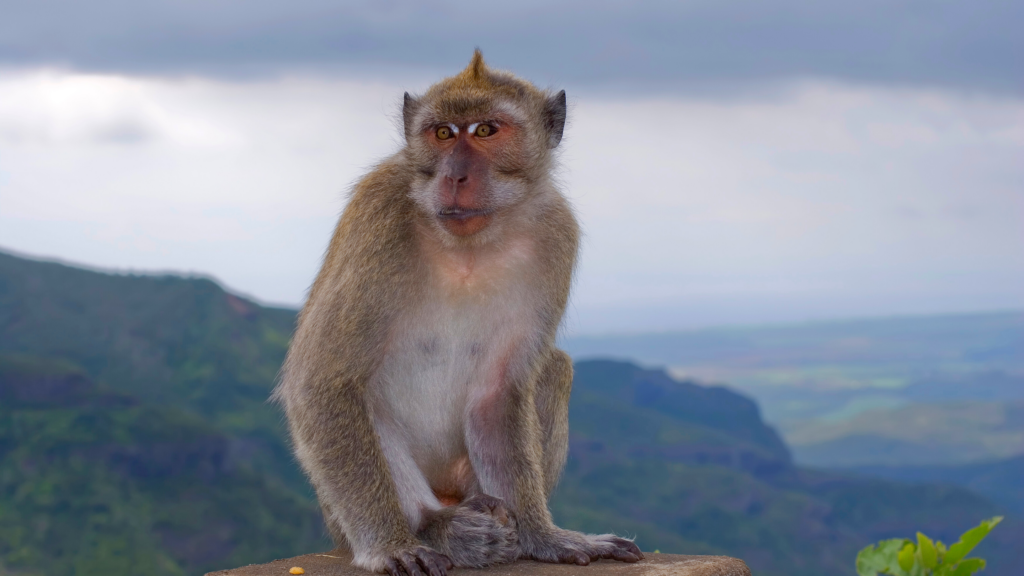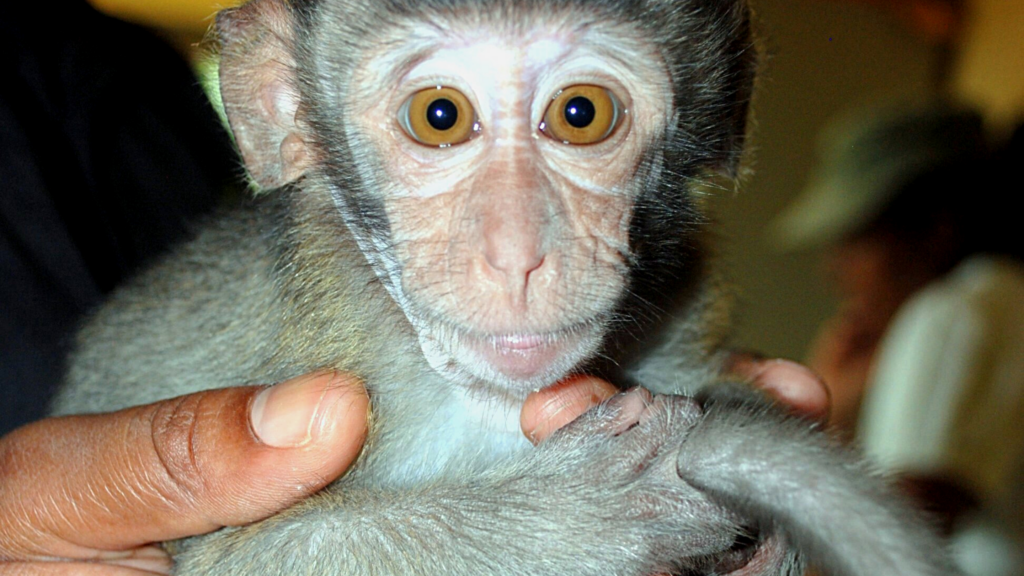
A trap. A monkey’s scream. Unknown hands squeezing a monkey’s body, lifting her by the tail.
A cage in a barren room filled with other cages, other monkeys.
A shipping container, cold and dark, where the monkey will sit shivering in the cold.
Jostling. Strange noises. Engine fumes.
A new cage, empty of the plants, fruits, and seeds the monkey was raised eating, cleaned by terrifying people in white jackets.
Cutting into the monkey’s body. Torturing her. Killing her.
A useless experiment. A waste of life.

The international primate trade for biomedical research is a threat to animal welfare, biodiversity, and human health. Over the last 10 years, more than 90,000 monkeys have been imported into the United States to support a cruel and unnecessary biomedical research industry. Some of these animals carried diseases dangerous to people. All of them suffered.
Although not much is known about the lived experience of wild caught monkeys brought to the U.S. for medical experiments, it’s certain that these monkeys experience unimaginable pain and trauma as they are trafficked brought here from China, Mauritius, and Vietnam to be used in medical experiments that abuse, maim, and kill.

Our strategy to address this problem leverages all of our expertise.
- We expose the suffering caused by this trade
- We oppose this cruelty by fighting with grassroots advocates like you
- And we replace the demand by finding human-relevant alternatives to animal experimentation.
And we won’t stop until every cage is empty.
Right now, you can join us by taking one quick online action.
Help stop the import of Mauritian monkeys for animal experimentation.
You can read more from Nathan on the Mauritian monkey trade in this article published by Sentient Media on October 28, 2020.
